What is tooth sensitivity? When you eat hot soup or ice cream, do you ever experience pain or discomfort? If this is the case, you are not alone. While discomfort from eating hot or cold meals may indicate the presence of a cavity, it is also frequent in those with sensitive teeth.
Dentin hypersensitivity, also known as tooth sensitivity, is exactly what it sounds like: pain or discomfort in the teeth as a reaction to certain stimuli, such as hot or cold temperatures. What is Tooth sensitivity symptoms? Can tooth sensitivity go away? Can stress cause tooth sensitivity? Let’s find out in this article!
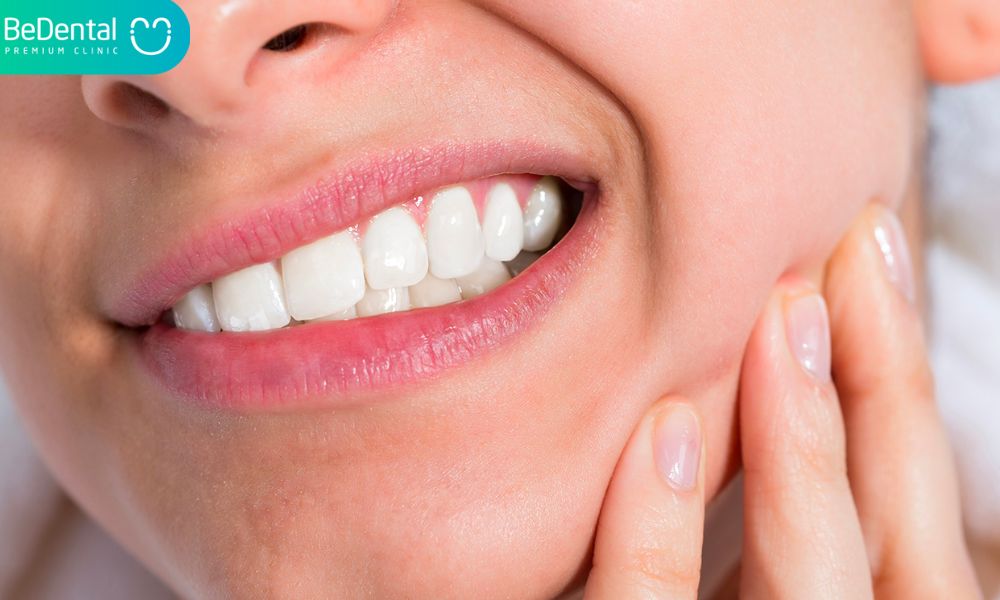
It might be a short-term issue or a persistent one, and it could impact one tooth, a few teeth, or all of the teeth in one person. Although there are several potential reasons, the majority of sensitive tooth situations may be effectively managed by altering your dental hygiene routine.
Tooth sensitivity symptoms
When certain triggers are present, people with sensitive teeth may feel pain or discomfort. The roots of the affected teeth may be painful for you. The most typical triggers are as follows:
- hot and cold foods and beverages
- sugary and acidic foods and beverages
- cold water, especially during routine dental cleanings
- brushing or flossing teeth
- alcohol-based mouth rinses
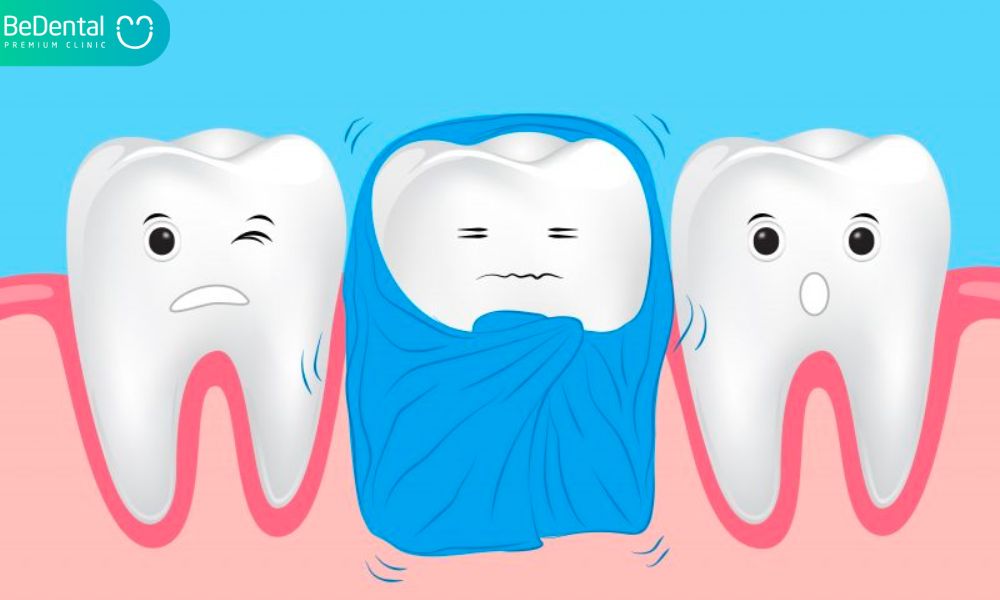
Your symptoms could fluctuate over time for no clear cause. They could be light or powerful.
Causes of tooth sensitivity
Some people naturally have teeth that are more sensitive than others because their enamel is thinner. The enamel is the tooth’s protective outer layer. The enamel of the tooth can frequently degrade as a result of:
- Brushing your teeth too vigorously
- using an unsuitable toothbrush
- grinding or clenching your teeth
- regularly eating or drinking acidic foods and beverages
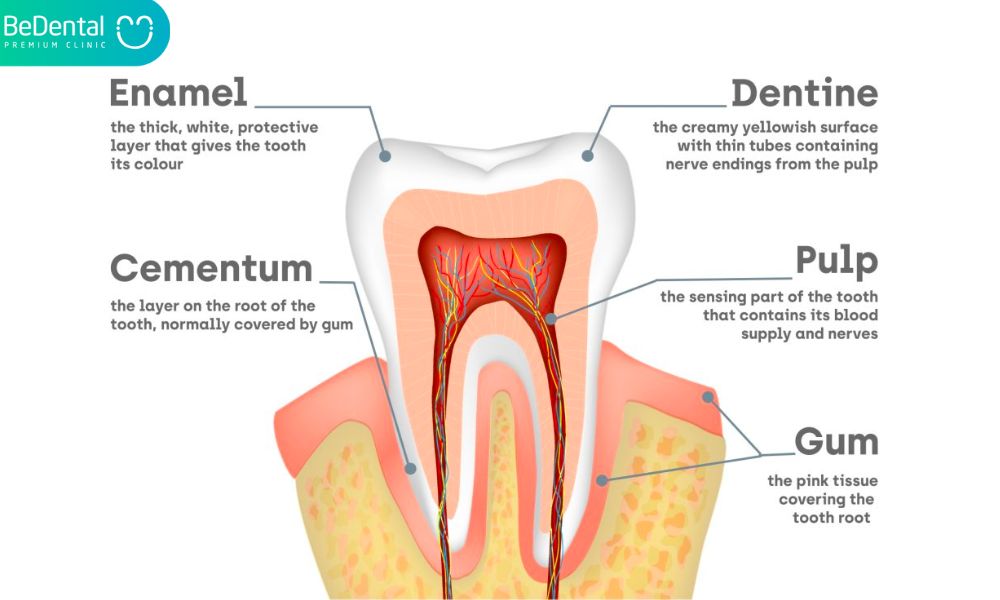
Tooth sensitivity can occasionally be brought on by other issues. Many factors can lead to the development of sensitive teeth, here are some causes of tooth sensitivity:
- Brushing too hard: Over time, brushing too hard or using a hard-bristled toothbrush can wear down enamel and cause the dentin to be exposed. It can also cause gum recession (when your gum tissue pulls away from your teeth).
- Gum recession: Some people are genetically prone to thin gum tissue. Other people develop gum recession as a result of periodontal disease. With gum recession, your gum tissue pulls away from your teeth, exposing the roots.
- Gum disease: Inflamed and sore gum tissue may cause sensitivity because of the loss of supporting ligaments, which exposes the root surface that leads directly to the nerve of the tooth.
- Cracked teeth: Chipped or broken teeth may fill with bacteria from plaque and enter the pulp, causing inflammation.
- Teeth grinding: Grinding or clenching your teeth may wear down the enamel and expose underlying dentin.
- Teeth whitening products: These products are major contributors to teeth sensitivity. If you want to brighten your smile, talk to a dentist about teeth whitening for sensitive teeth.
- Age: Teeth sensitivity is highest between the ages of 25 and 30.
- Plaque buildup: The presence of plaque on the root surfaces can cause sensitivity.
- Mouthwash use: Some over-the-counter mouthwashes contain acids that can worsen teeth sensitivity if you have exposed dentin (the middle layer of the tooth). The acids further damage the dentin layer of the tooth. If you have dentin sensitivity, ask your dentist about the use of a neutral fluoride solution.
- Acidic foods: Regular consumption of foods with a high acid content, such as citrus fruits, tomatoes, pickles and tea, can cause enamel erosion.
- Recent dental procedures: People can get sensitive teeth after fillings, teeth cleanings and dental restoration placement. Sensitivity caused by dental procedures is temporary and usually disappears in four to six weeks.
- Sensitivity can result from the tooth’s dentin becoming exposed as a result of tooth decay, broken, chipped, or worn-down fillings or crowns. In this scenario, you probably won’t experience sensitivity in the majority of your teeth, but rather in just one particular tooth or area of your mouth.
- After receiving fillings, crowns, or teeth whitening, your teeth may become temporarily sensitive. In this scenario, the affected tooth or teeth will only experience sensitivity as a result of dental work. After several days, this should stop.
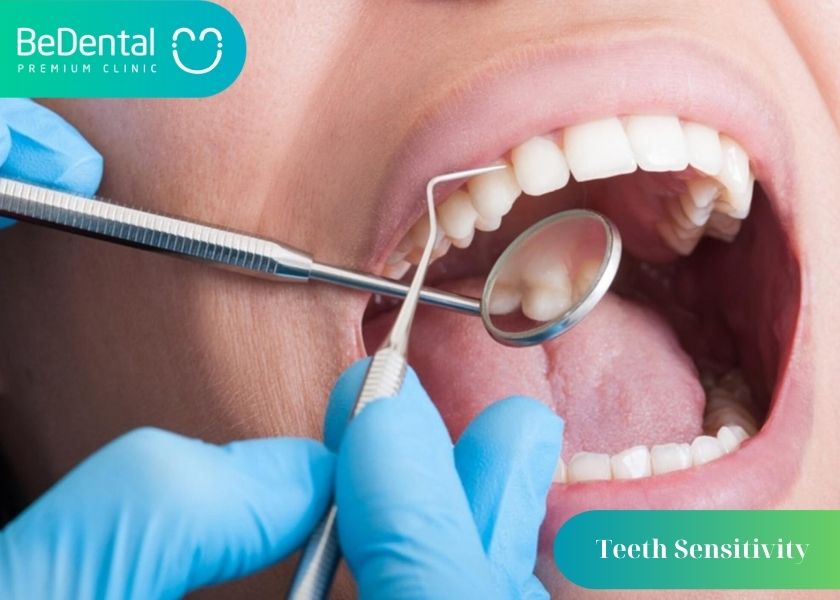
Diagnose Procedure
Make an appointment with your dentist if this is the first time you’ve noticed tooth sensitivity. They can examine the condition of your teeth and look for any issues that might be causing the sensitivity, such as cavities, loose fillings, or receded gums.
During the course of your regular dental cleaning, your dentist can perform this. They will perform a visual examination and clean your teeth. In addition to ordering an X-ray on your teeth to rule out potential reasons like cavities, they may use dental equipment to touch your teeth to check for sensitivity.
In-office Treatment Procedure
You can try over-the-counter dental remedies if your tooth sensitivity is mild.
Select toothpaste with the claim “especially formulated for sensitive teeth” on the packaging. These toothpastes won’t contain any irritants, and they may even contain desensitizing ingredients that help prevent discomfort from reaching the tooth’s nerve.
Choose an alcohol-free mouthwash while using mouthwash since it won’t irritate your teeth as much if you have sensitive teeth.
Additionally beneficial are softer toothbrushes and gentler brushing techniques. Soft toothbrushes will carry a corresponding label.
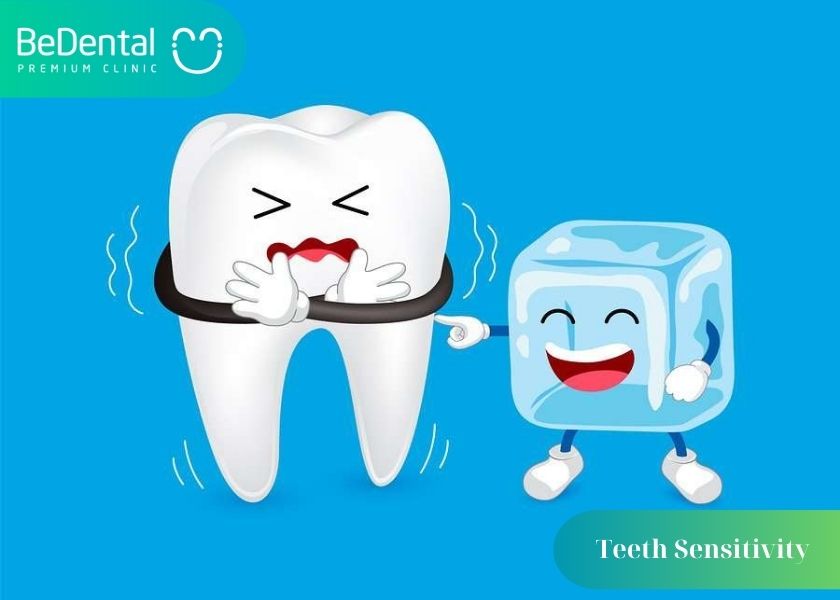
For these treatments to be effective, it typically takes several applications. Within a week, you ought to notice progress.
You might ask your dentist about prescription toothpaste and mouthwash if home remedies are unsuccessful. They could also use prescription-strength desensitizing products or fluoride gel to apply in-office. These can support the enamel and safeguard your teeth.
At-home Treatment Procedure
Depending on the cause, different treatments are used. Make an appointment with your dentist as soon as you have any residual tooth sensitivity or discomfort. Before they can suggest the right treatment plan, they must filter out any significant problems.
- Use desensitizing toothpaste:There are numerous toothpaste brands available for sensitive teeth. Regular usage ought to result in a loss of sensitivity. To find the product that works best for you, you might need to test out a few different brands. Another suggestion is to apply a thin layer of toothpaste with a Q-tip or your finger to the exposed tooth roots before night. Use fluoridated toothpaste only.
- Maintain good oral hygiene: Continue using the right brushing and flossing techniques to completely clean your mouth and teeth.
- Use a soft-bristled toothbrush: As a consequence, the tooth surface will be less damaged by toothbrush abrasion, and your gums will be less irritated.
- Watch what you eat: Frequent eating of foods rich in acidity can eventually erode tooth enamel and exposed dentin. They might also heighten sensitivity and trigger a pain response.
- Use fluoridated dental products: Use of a fluoridated mouthwash on a regular basis can lessen sensitivity. Inquire with your dentist about any products you can use at home.
- Avoid teeth grinding: If you grind or clench your teeth, use a mouthguard at night.
Consult your dentist if you experience any discomfort in any way. Dental treatments like the use of:
- Dental bonding to cover exposed root surfaces.
- Fluoride varnishes applied to the exposed root surface.
- Dentin sealers applied to the exposed root surface.
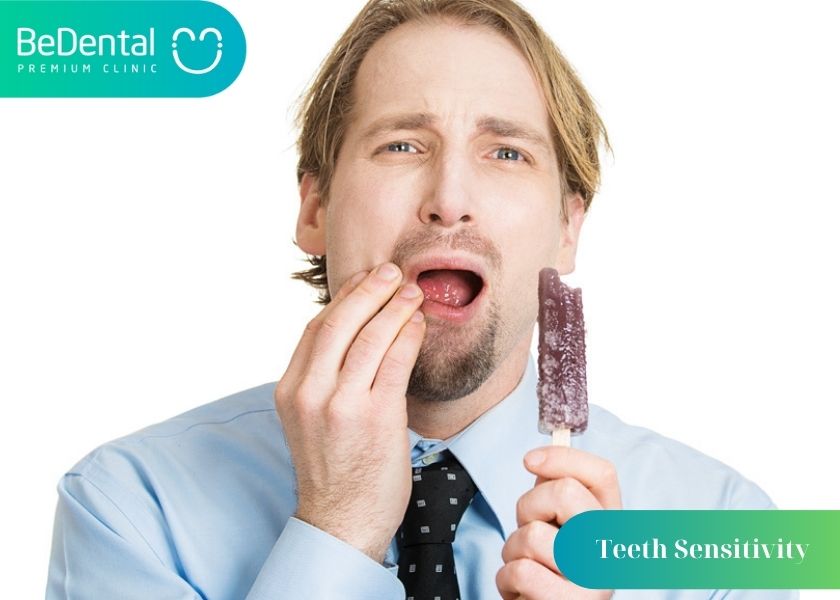
Q&A
Can treating medical conditions cause tooth sensitivity?
If underlying conditions are the root of your tooth sensitivity, you should address them before they erode the enamel and harm your teeth.
Acid reducers can be used to treat GERD, and a psychiatrist should supervise bulimia treatment.
By brushing more softly and practicing proper dental hygiene, you can cure receding gums. Your dentist could suggest employing a gum graft if you are experiencing extreme sensitivity and discomfort as a result of significant gum recession. To protect the tooth, tissue from the palate is applied over the root during this procedure.
By being conscious not to do so during the day, you can teach yourself to stop clenching or grinding your teeth. Caffeine and stress reduction prior to bedtime can also help you avoid nighttime teeth grinding. If that doesn’t stop the grinding, you can wear a mouthguard at night to protect your teeth.
Can tooth sensitivity go away?
You can train yourself to stop clenching or grinding your teeth by making a conscious effort not to do so during the day. Prior to going to bed, avoiding stress and caffeine might also help you stop grinding your teeth at night. Wear a mouthguard at night to protect your teeth if that doesn’t stop the grinding.

When should I be worried about tooth sensitivity?
It’s time to see the dentist as soon as possible if the pain or sensitivity gets so bad that it interferes with the patient’s ability to go about their daily activities normally. It is crucial to see a dentist if your teeth are too sensitive for a number of reasons.
Can stress cause tooth sensitivity?
Although it’s not always a direct cause and effect, stress can affect tooth sensitivity in a number of very significant ways, such as grinding and clenching, dietary changes, and preventative maintenance.
Can tooth sensitivity nerve heal itself?
The dentist may recommend a dental filling when the symptoms are mild and the tooth root is visible. Root canal therapy is necessary in cases where the symptoms are severe. In either case, seek emergency dental care as soon as you can.
See more
Tooth Fillings and 3 Problems with Tooth Fillings
Chipped tooth: Causes, Symptoms and 4 ways to Handle
Coffee In Moderation and Its Dental Effects
Seniors’ Tooth Loss and 5 Tips to Keep Your Teeth Healthy
Tư vấn chuyên môn bài viết:
BÁC SĨ ĐÀM TRỌNG HIẾU






Pingback: Teeth grinding: 4+ things you must know – Be Dental
Pingback: Periodontal disease and 12 common periodontal diseases – Be Dental
Pingback: 3 Levels of Tooth Decay: Causes, Treatments and Prevention – Be Dental